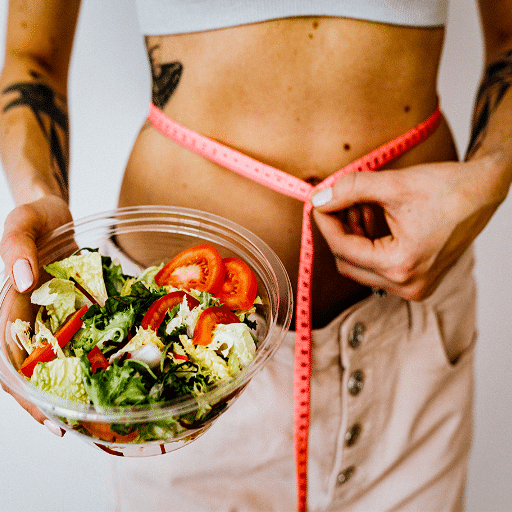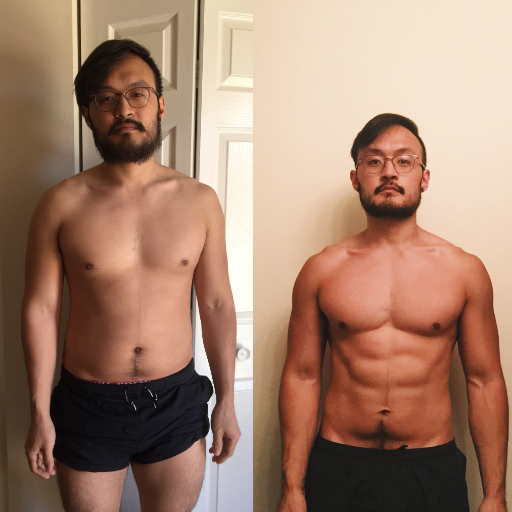Getting fit is commonly linked to extreme hours of exercise through rough workouts, but that doesn’t mean the older approach must be utilized to achieve the necessary requirements. If you are looking for guidance on how to lose 15 pounds by 2025 and do not want to exercise, then this guide is for you. It aims to suggest lifestyle changes, diets, and other scientifically healthy methods that do not require physical endurance. If you are busy, have some physical restrictions, or are looking towards an unorthodox but more straightforward approach, this article is right on target, providing you with reachable goals to help you achieve your target weight loss.
What are the Best Ways to Lose Weight Without Exercise?
What are some highly effective ways of losing weight without dieting?
In my findings, I have discovered that mindful lifestyle changes can help lose weight without resorting to any diet. First, portion control can reduce meal sizes while managing calorie intake without eliminating food entirely. Secondly, having enough sleep is crucial since it prevents poor hormonal balance, which could lead to weight gain. Lastly, passive movement can be integrated into daily routines to facilitate weight loss. These routines can include taking the stairs instead of elevators and increased walking, which burns calories without needing a rigid exercise regime. These methods assist in gradual, sustainable weight loss.
In what ways does drinking water facilitate weight loss?
By drinking water, weight loss is achieved since it boosts one’s metabolism, suppresses appetite, and improves overall hydration. Taking water before meals makes you feel fuller, reducing one’s calorie intake. Furthermore, staying hydrated increases fat neutralization and enhances digestion, the two essential components needed to attain weight goals. This aids in reinforcing other lifestyle changes, which are beneficial yet easy to improve.
Are there weight loss approaches that do not involve exercise and are successful?
1. Tips To Lose Weight Without Exercising
One of the highly recommended methods for weight loss is managing your caloric intake. This method works by consuming fewer calories than the body can sustain. This eventually leads fat storages to be used as energy. According to CDC guidelines, this can be achieved by reducing daily caloric by 500-750, enabling safe weight loss of 1-2 pounds a week. Portion controlling and selecting vegetables, grains, and lean protein as primary energy sources are crucial for this.
2. Changing When You Eat (Intermittent Fasting)
Intermittent fasting approaches have gained a lot of popularity recently. One such method is the 16/8 approach. This approach requires fasting for 16 hours, and restricting food intake to an 8 hour window. This method is not only beneficial for BMI but also increases insulin sensitivity. Research on the approach published on the website Obesity Reviews suggests that intermittent fasting is effecient and results in significant weight loss without exercise.
3. Optimizing Macronutrient Ratios
Adjusting the macronutrient ratios can have a good effect on metabolism and satiety. High-protein diets, for instance, enhance thermogenesis (the burning of calories while digesting food) and overall satiety, while also maintaining lean muscle mass during caloric deficit. It is estimated that a daily protein consumption within the range of 1.2 and 1.6 grams per kilogram of body weight promotes weight loss. Furthermore, cutting back on refined carbs and increasing the dietary fiber from whole foods such as lentils and oats can help maintain normal blood sugar levels, reduce appetite, and facilitate fat burning.
- Caloric Deficit: Reduction of caloric intake by 500 – 750 kcal/day for gradual weight loss (CDC guidelines).
- Protein Intake: 1.2 to 1.6 g/kg body weight/day has benefits for thermogenesis and satiety (American Journal of Clinical Nutrition).
- Intermittent Fasting: 16-hour fasting window has been shown to improve insulin sensitivity (Ref. Endocrine Reviews).
- Fiber Intake: Not less than 25 – 30 g/day, as the Academy of Nutrition and Dietetics recommends, to aid digestion and curtail appetite.
The well-planned application of the above can make it possible to lose weight without exercise while improving general wellness.
How Does Caloric Intake Affect Weight Loss Without Exercise?
What is the relationship between calorie intake and weight gain?
The intake of calories is a fundamental element in weight gain. More calories consumed than what the body requires for energy, leads to the excess calories being stored as fats, as a result, there is always a positive relationship between the two. As far as I understand, increasing caloric intake over a given period results in weight gain, and conversely, consuming fewer calories than needed creates a negative balance, resulting in a decrease in weight. The body’s energy balance is paramount; however, other factors such as metabolism, the activity performed, and the type of calories consumed impact the weight. These days, portion control and selective eating can also assist in keeping the calorie intake to a desired level.
How can one control plates on the table concerning portion control?
Weight loss using smaller plates is possible with smaller portions and less likelihood of overeating. From what I learned, the size of the plate controls perception, making portions appear more prominent, which in turn makes the brain feel satisfied consuming less food. This is supported by people who entertained psychological principles like the Delboeuf illusion, making it easier to covertly assist in calorie control.
How do the food choices affect weight control?
After looking at the most relevant sources, it appears that food choices are critical in managing body weight, as they adversely affect caloric intake, metabolism, and nutrient balance. Choosing unprocessed and nutrient-dense foods like fulfilling vegetables, fruits, lean proteins, and whole grains lowers calorie intake and ensures that essential vitamins and minerals are absorbed. In this context, controlling the level of energy balance is crucial since weight is simply controlled by consuming less calories than those burnt. Parameters like glycemic index (GI) also need to be considered; low GI foods assist in the control of blood sugars, therefore reducing cravings and increasing appetite control. In addition to these, caloric balance and macronutrient balance protein, fat, and carbohydrates may also negatively impact the feeling of satiety and energy expenditure, which are vital in managing weight over the long term. There is scientific evidence to support these principles, providing a comprehensive guide for long-term health and dietary practices.
Can Getting Enough Sleep Help You Lose Weight Without Exercising?
How does sleep quality affect a person’s ability to control weight?
The effective weight management is influenced by the quality of sleep a person has because it affects hormonal control, energy equilibrium, and metabolic activities. Poor sleep interferes with the release of important hormones such as leptin and ghrelin. Those who do not get sufficient sleep have reduced levels of leptin, which suppresses appetite, and increased levels of ghrelin, which boosts appetite. This hormonal imbalance can result in excessive eating and poor dietary habits. Furthermore, lack of proper rest decreases insulin sensitivity, which reduces glucose metabolism and increases fat storage.
Researchers suggest that adults need 7-9 hours of sleep every night to maintain an active metabolic rate. Equipment power metabolism is afflicted with sleep deprivation and incorporates RMR reduction and increased energy consumption. In addition, the lack of quality sleep contributes to high cortisol hormone production, which is responsible for fat deposition and obesity, particularly in the waist area. These parameters mark the definition of what sleep and weight management should entail.
What are the pros of achieving more sleep when losing weight?
Increasing the amount of sleep you get contributes to weight loss by improving some biological functions. Getting more sleep helps curb the appetite for unhealthy high-calorie foods because of the appetite-regulating hormones ghrelin and leptin. More sleep also increases energy levels, making physical exercise more efficient and increasing the amount of calories burned during the workout. In addition, more sleep results in better insulin sensitivity, which helps control the amount of sugar in the blood and reduces fat storage in the body. Rest is, thus, highly vital to effective weight management.
What Foods Can Help You Lose Weight Without Exercise?
Which foods have a high fiber content and help lose weight?
Foods targetted towards losing weight that are higher in fiber include legumes like lentils and peas that give fiber and protein needed for satiation. Other whole grains, such as oats, quinoa, and brown rice, also do well. They have high fiber content and low glycemic index, which assist in blood sugar regulation. In addition, apples, berries, pears, broccoli, carrots and brussels sprouts can be added to the diet to help with digestion and satiation. These foods assist in naturally reducing calorie consumption while ensuring proper nutrition.
What is the relationship between protein intake and weight loss?
Intake of protein assist in losing weight by reducing the feeling of hunger thus lowering calorie intake. Additionally, proteins more efficiently create thermic effects than carbohydrates and fat. So, the body burns more calories than it stores when digesting proteins. Moreover, protein aids in keeping lean muscle mass intact when losing weight. Ensuring that the body burns fat primarily. This makes the inclusion of protein into meals and snacks effective for controlling hunger and boosting metabolism. These factors are beneficial for effective weight loss.
What are some recommended weight-loss dietary changes that do not incorporate dieting?
According to my research, the most practical dietary approaches revolve around making minor adjustments to one’s eating patterns that would make a significant difference. Whole foods should be considered first. Such food includes vegetables, fruits, lean meat, whole grains, and others since these foods are highly nutritious and lower in calories. Other changes, such as consuming protein-containing foods like eggs, chicken, tofu, and legumes, will also keep appetite in check and aid metabolism. Moreover, swapping sweetened beverages with water and unsweetened drinks and practicing portion control would yield positive results over time. As such, instead of restricting myself too much, it is now possible to focus on balance and moderation, making managing weight easier.
Are There Any Beverages That Aid in Losing Weight Without Exercise?
What role do diet sodas play in weight loss?
While sideways to this notion couldn’t dry it, the market tags them as a drink that substitutes the sugar beverage, which is handy for dieters. From one side, their consumption rather than sodas may lower the caloric intake. Some studies have shown that artificial sweeteners in diet sodas could affect appetite regulation or cravings, thus leading to excess consumption. Personally, I believe diet sodas should be used when looking to lose weight but should not be the primary source of nutrition. Instead, other dietary practices should be adopted to derive sustainable results.
How can drinking water before meals lead to weight loss?
Drinking water serves as an ally to losing weight. From my experience, out of several methods to exploit, I understood that it decreases appetite and increases hydration. For example, drinking a glass of water thirty minutes before meals makes me feel full, meaning I consume fewer calories. Just like any other diet plan, this also makes losing weight easy. In my opinion, it prevents excessive eating and encourages metabolic functions integrated with fat burning because water, Without a doubt, is essential for survival. This, in combination with other practices, fosters a healthy lifestyle.
How Important is Eating Mindfully in Weight Loss?
Why is eating distraction-free food vital in this day and age?
Eating with no distractions is key for weight loss as it allows me to slower enable the sensing of hunger and fullness, reducing the chances of overeating. Eating while engaged with an activity allows up to 25% more calories to be consumed. I tend to eat at a more moderate rate when I am only focused on one thing. This allows my leptin hormone send signals telling my brain that I am full, this signal takes around 20 minutes. Furthermore, being aware of the texture and portions of food allows me to control mindless eating while enabling better habits over time. This proves that mindful eating allows a reduction in calorie intake and increases dietary satisfaction.
How does portion control impact calorie intake?
Portion control significantly affects caloric intake by promoting low intake rates and ensuring that meals correspond with the advised overall caloric consumption for the day. Research shows that serving sizes that are too large could result in calorie consumption growth of up to 30-50%, this is because individuals tend to consume whatever amount that is put in front of them which discourages portion restraint. Having tools to measure and estimate portions, such as measuring cups and food scales, can help people stick to calorie guidelines, for example, the average recommendation of 2000 calories per day for active aged men and women above a particular age. This level of accuracy means me avoiding unnecessary calories and still obtaining what the body needs. Also, of great importance in this type of calorie management is the need for people to cut their meals into manageable amounts; for example, they can serve themselves ½ cup of grains and 3 – 4 ounces (about the size of a palm) of proteins. This approach will ensure they remain cognizant of what they are eating long into the future, thus helping to manage their weight.
Reference sources
Frequently Asked Questions (FAQs)
Q: Can I lose weight without exercising?
A: Yes, it is possible to lose weight without exercise by focusing on your diet and making conscious food choices. You can create a weight loss plan that includes eating more fiber, reducing sugar intake, and balancing your meals.
Q: How does eating more fiber help with weight loss?
A: Eating more fiber can help you feel fuller longer, which may reduce your overall calorie intake. High-fiber foods are often linked to weight loss as they improve diet quality and decrease the likelihood of overeating.
Q: What kind of diet plan should I follow to lose 15 pounds in 2025?
A: A balanced diet plan that includes plenty of fiber, lean proteins, and low fat dairy while minimizing sugary foods is effective for healthy weight loss. Incorporating a variety of fruits and vegetables will also support your weight loss journey.
Q: Is it really possible to lose 20 pounds without exercising?
A: Yes, it is possible to lose 20 pounds without exercising by adhering to a strict diet plan that promotes a caloric deficit while also being rich in nutrients. Focus on reducing sugary foods and incorporating healthy fats into your meals.
Q: How important is staying hydrated in my weight loss journey?
A: Staying hydrated is crucial as it aids in digestion and can help you recognize true hunger versus thirst. Drinking plenty of water can also support your metabolism and help manage your overall caloric intake.
Q: What should I avoid in my diet to lose weight?
A: To lose weight, you should avoid high-sugar foods, excessive amounts of fat, and processed foods. Instead, focus on wholesome foods, as they are likely to support your effort to lose without exercising.
Q: Are there any specific health conditions that can affect my ability to lose weight?
A: Yes, certain health conditions can affect your metabolism and ability to lose weight. It’s important to consult with healthcare providers if you have any concerns, as they can help create a personalized weight loss plan that takes your health into consideration.
Q: Can a weight loss app be helpful in my diet plan?
A: Absolutely! A weight loss app can help you track your food intake, monitor your progress, and set realistic goals. Many apps provide insights into your diet quality, making it easier to stick to your weight loss plan.
Q: According to experts, what are some tips for effective weight loss?
A: Experts recommend focusing on a balanced diet that includes protein and fiber, reducing sugar intake, and ensuring that you eat plenty of healthy fats. These steps are essential for creating a successful weight loss plan without relying on exercise.

















